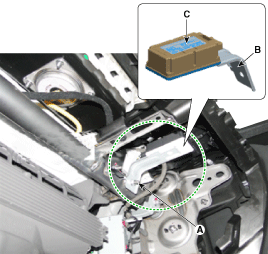Hyundai Genesis: Tire Pressure Monitoring System / TPMS Receiver Repair procedures
Hyundai Genesis (DH) 2013-2016 Service Manual / Suspension System / Tire Pressure Monitoring System / TPMS Receiver Repair procedures
| Replacement |
| 1. |
Disconnect the negative (-) battery cable. |
| 2. |
Remove the crash pad.
(Refer to Body - "Crash Pad") |
| 3. |
Remove the connector. |
| 4. |
Remove the bracket (B) and receiver (C) by loosening the nut (A).
|
| 5. |
Install in the reverse order of removal. |
| 6. |
Re-connect the battery, and then turn on the ignition.
|
| 7. |
Replace the receiver, and then perform the learning process using a diagnostic instrument (GDS). |
| Diagnostic Procedure Using a Diagnostic Instrument |
The following section describes how to diagnose faults using a diagnostic instrument.
| 1. |
Connect the diagnostic instrument to the self-diagnostic
connector (16-pin) beneath the crash pad on the side of driver's seat,
and then turn on the ignition to activate the diagnostic instrument. |
| 2. |
In the GDS Vehicle Type Selection menu, select "Vehicle Type" and "TPMS" System, and then opt for "OK." |
[Wheel Sensor ID Writing (Wireless)]
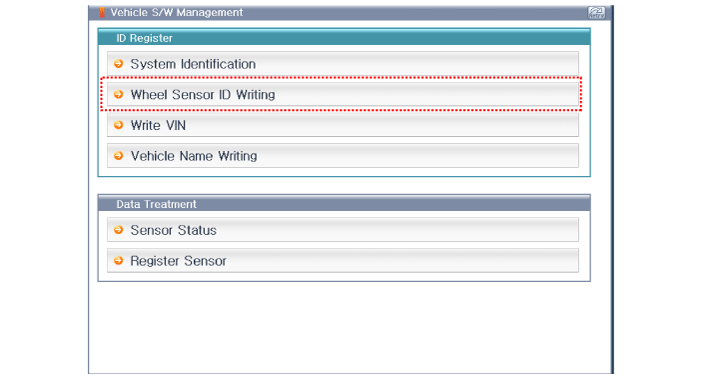
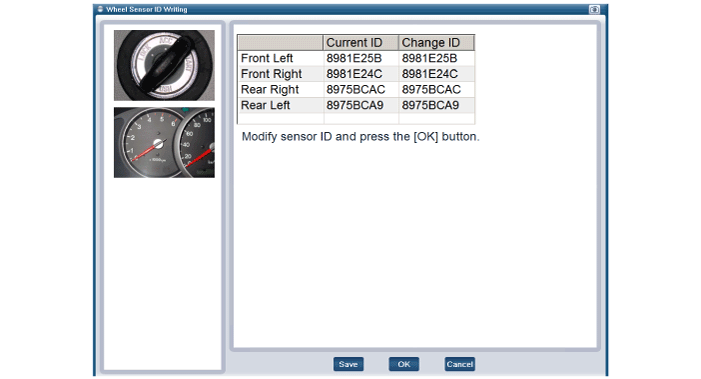
[Vehicle Name Writing]
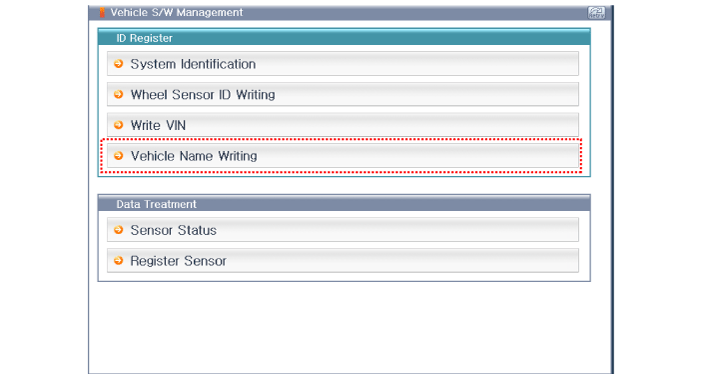
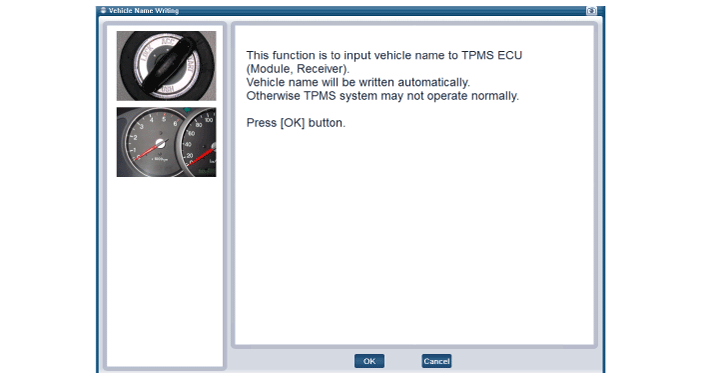
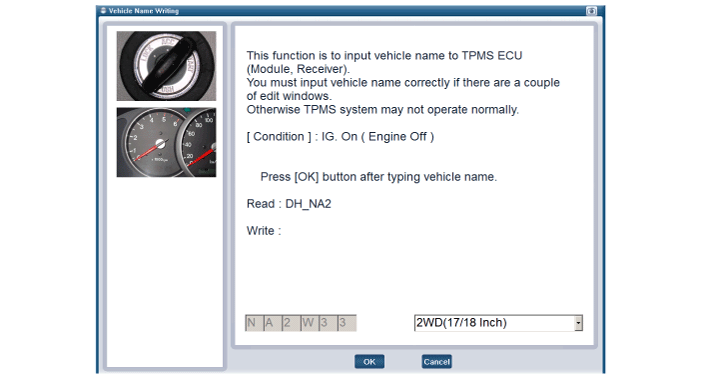
[VIN Writing]
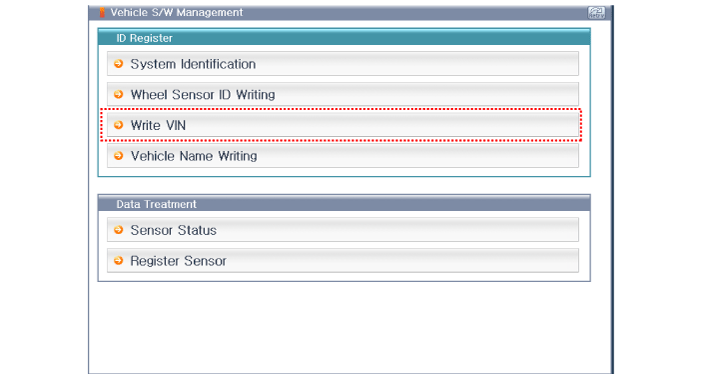
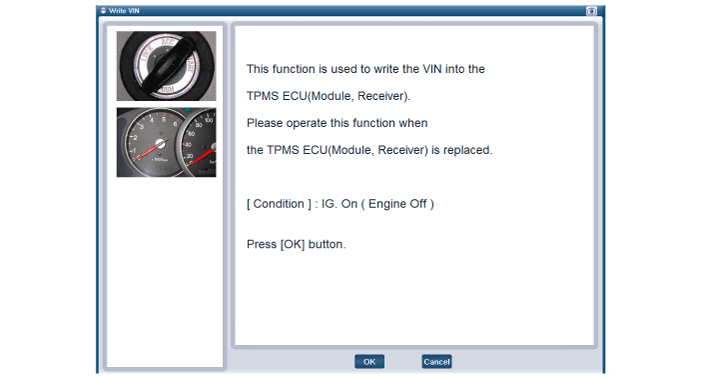
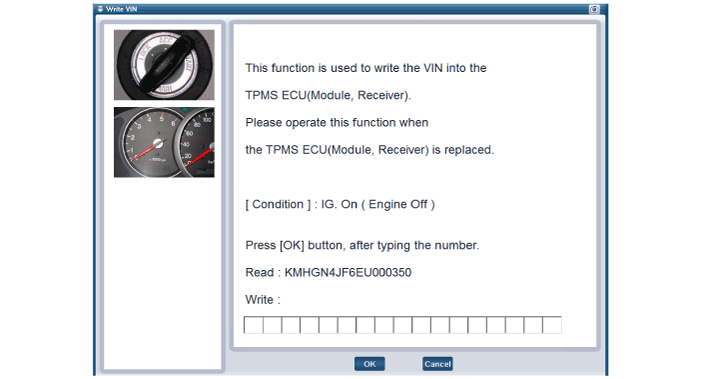
 TPMS Receiver Schematic Diagrams
TPMS Receiver Schematic Diagrams
Circuit Diagram
1.
Circuit diagram
2.
Receiver connector terminals.
3.
Receiver connector function.
No FunctionDescription1BatteryVBAT2IG ONBattery to IG ON3CAN_HighCAN_High4CAN_Lo ...
 Steering System
Steering System
...
Other information:
Hyundai Genesis (DH) 2013-2016 Service Manual: Exhaust Manifold Repair procedures
Removal and Installation LH Exhaust Manifold 1. Disconnect the battery "-" terminal from the trunk room. 2. Loosen the drain plug and drain the engine coolant. (Refer to Cooling System - "Coolant") 3. Remove the water outlet pipe. (Refer to Cooling System - "Water Temperature Control ...
Hyundai Genesis (DH) 2013-2016 Service Manual: Rear Bumper Beam Assembly Components and Components Location
Component Location 1. Rear bumper beam assembly ...
© 2013-2025 www.hgenesisdh.com

